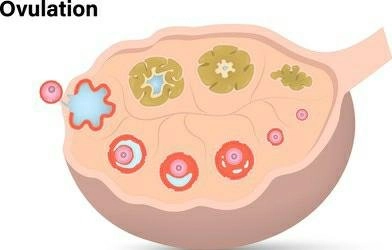
A Quick Guide On How To Get Pregnant
When you are trying to get pregnant, it can be taxing to take care of the zillion little things. From keeping tabs on the ovulation dates to the constant worrying about conceiving, there is an endless number of things to be kept in mind.
Maintain a Healthy Lifestyle :
If you’re wondering how to increase your chances of getting pregnant fast, self-care can go a long way. It’s no secret that your body goes through some major changes and challenges during pregnancy and delivery, so be sure to start your pregnancy journey in tip-top shape by taking important steps toward living a healthy lifestyle.
Here are some simple health tips to get pregnant :
_1650355552.webp)
Keep track of your menstrual cycle :
Tracking your period cycle is not only important to increase your chances of getting pregnant, but it is also crucial for your overall health. So, first things first, start keeping a tab on your period dates. There are plenty of applications readily available on smartphones these days which can do the job for you. Your menstrual cycle is calculated from the first day of your period to the first day of the next cycle. It usually varies between 21-35 days as it differs for every woman.
Focus on the right time :
While having unprotected sex regularly i.e. every 3 to 5 days is one way to go, you also need to know the time when your body is the most fertile. Hence, it is important to know the days of your ovulation.
Eat a healthy diet :

You should try to eat a nutritious, balanced diet rich in fruits, vegetables, and whole grains. Healthy foods help increase progesterone levels, support ovulation and encourage early implantation three critical factors in conceiving.
Weight is one of the most influential factors when it comes to fertility for men and women. Being either underweight or overweight is associated with increased infertility.
This is because the amount of fat stored in your body influences menstrual function. Obesity especially is associated with lack of ovulation and menstrual irregularity but also with impaired egg development. To improve your chances of getting pregnant, work with your healthcare provider to try to lose weight if you’re overweight and gain weight if you’re underweight. They can help you do it healthily and sustainably.
What is ovulation?

Ovulation is the release of an egg from the ovaries. After the egg is released, its primary goal is to move down the fallopian tube and meet the sperm for fertilization. The egg survives for around 12 to 24 hours.
Why should you know about your ovulation dates?
The biggest mistake that you can make while trying to get pregnant is not knowing the days you are ovulating. A woman is much more likely to be fertile during her ovulation period, so you must know about these dates in the month.
Get hot and heavy before you ovulate :
As we have mentioned before, an egg usually lives around 12 to 24 hours after being released. So to seize the opportunity, it is advised to have regular, unprotected sex right before your ovulation dates begin.
To boost your chances of getting pregnant, keep a tab on your menstrual cycle and start having regular vaginal sex right after your period ends. The logic here is since sperms usually have a life of around 2 to 5 days, having sex before the ovum is released increases the chances of having a sperm around when the egg is finally released.
Get folic acid :
Folic acid is an important prenatal vitamin, which your body needs more during pregnancy. It is considered a pregnancy superfood that is known to prevent birth defects. Additionally, you must maintain a balanced diet including orange juice, green and leafy vegetables, and fresh fruits.
Good nutrition is vital for a healthy body and reproductive system and to help you become pregnant. Eating a nutritious diet and making positive lifestyle changes can help boost fertility and prepare your body for pregnancy. Plus, it’s just helpful to you all around.
If you’re trying to get pregnant, you must begin making healthy nutrition and lifestyle choices today. But don’t let stress and worry get you down. Talk to your healthcare team to find the best choices for you.










